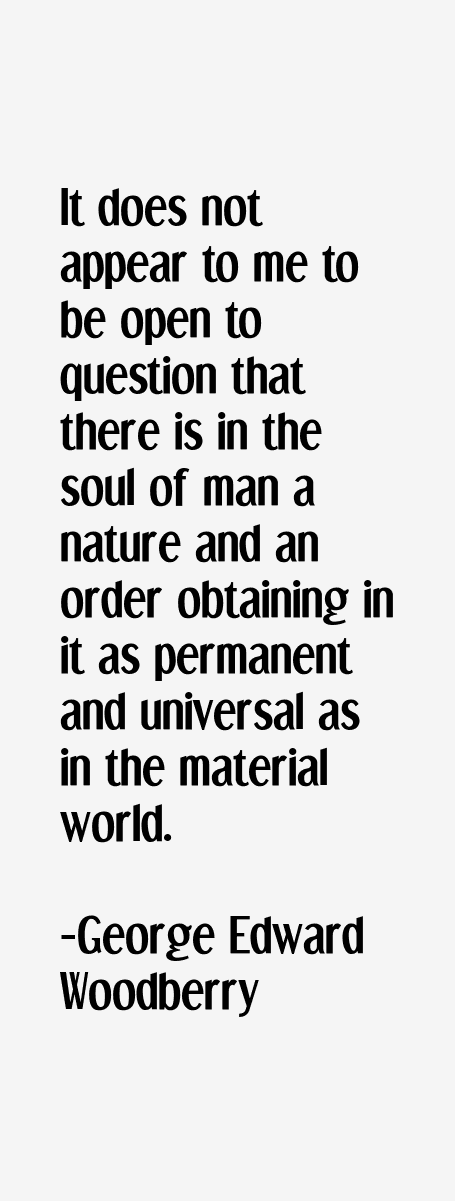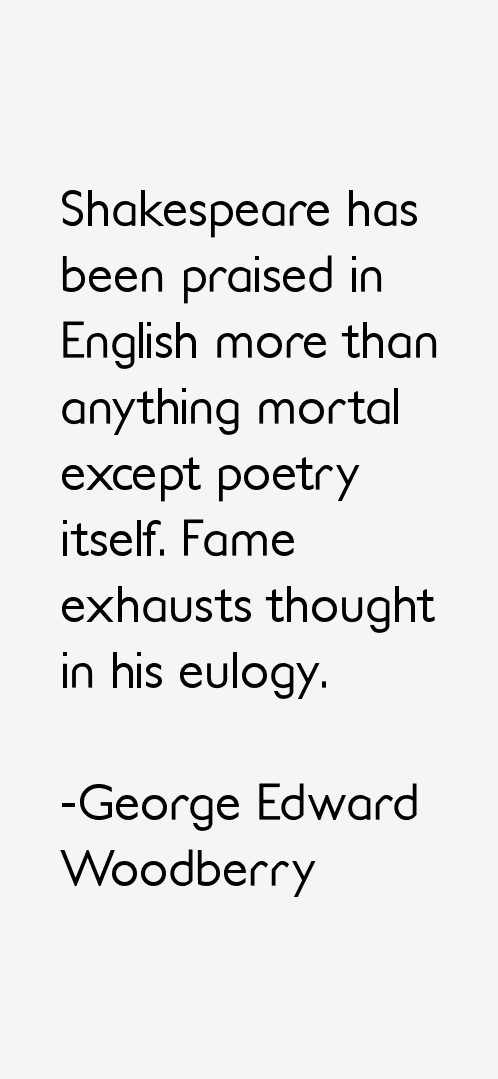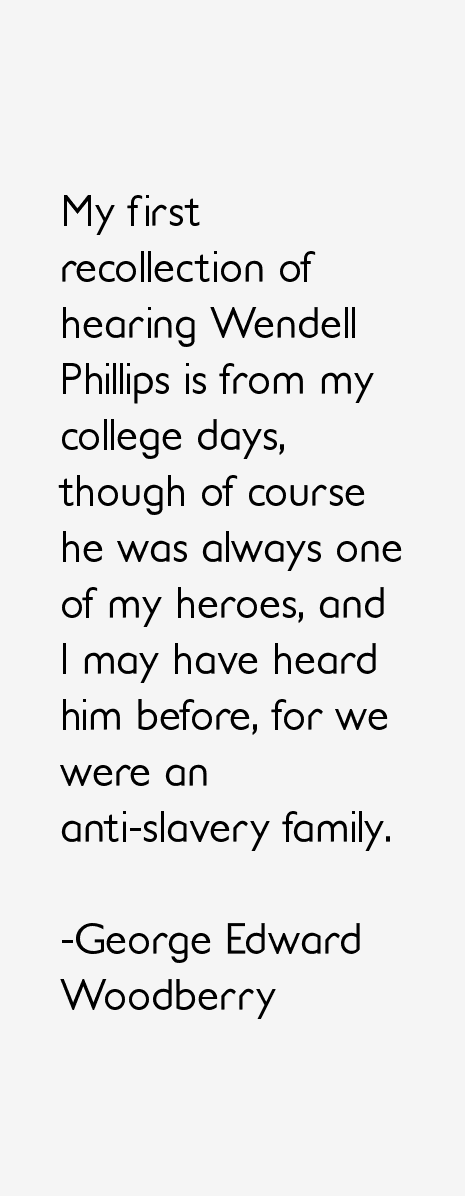George Edward Woodberry Quotes & Sayings (Page 4)
George Edward Woodberry quotes and sayings page 4 (critic). These are the last 9 out of 39 quotes we have.

“It does not appear to me to be open to question that there is in the soul of man a nature and an order obtaining in it as permanent and universal as in the material world.”
“To realize life in the abstract as noble or beautiful or humane, to set it forth so with radiance upon it, that is civilization in the arts. Shakespeare is the chief modern example of this supreme faculty of mankind.”

“Shakespeare has been praised in English more than anything mortal except poetry itself. Fame exhausts thought in his eulogy.”
“Who of English speech, bred to the traditions of his race, does not recognize Hamlet in his 'inky cloak' at a glance? Not to know him would argue one's self untaught in the chief glories of his language.”
“Our understanding of Shakespeare already depends largely on the vitality of Renaissance elements in our education. Each man must live in his own generation, as the saying is; but the generations are bound together by the golden links of the great tradition of civilization.”
“The critic is genius at one remove; he is not unlike an actor on the stage, and incarnates in his mind, as the actor embodies in his person, another's work; only thus does he understand art, realize it, know it; and having arrived at this, his task is done.”
“Much of a poet's experience takes place in imagination only; the life he tells is oftenest the life that he strongly desires to live, and the power, the purity and height of his utterance may not seldom be the greater because experience here uses the voices of desire.”

“My first recollection of hearing Wendell Phillips is from my college days, though of course he was always one of my heroes, and I may have heard him before, for we were an anti-slavery family.”
“The great effort of civilization has been, and still is, the attempt to introduce a principle of control into that casual swarm of impressions which makes up men's thought and of which, especially with swayed by emotion, spontaneous action is the law.”
George Edward Woodberry Quotes Rating
No Ratings Yet
Leave A Comment
























